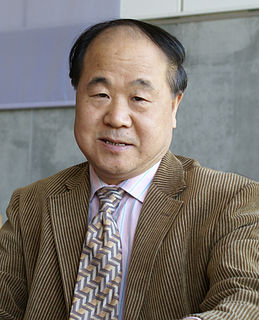A Quote by Yao Ming
Putting our ecosystem in great peril is certainly not a part of Chinese culture that I know.
Related Quotes
At the beginning of my career as a writer, I felt I knew nothing of Chinese culture. I was writing about emotional confusion with my mother related to our different beliefs. Hers was based in family history, which I didn't know anything about. I always felt hesitant in talking about Chinese culture and American culture.
I see people getting so caught up in celebrating diversity that they are neglecting their commonality. I don't see this as a good thing. The Chinese culture has survived for more than five thousand years in part because the Chinese have embraced the same language and culture. I hope I am wrong about this, and that the flame is still on beneath the great American melting pot. Americans need each other, and a house divided, no matter the color of its occupants, is still divided. And divided we all fall.
But you know what, honestly? I'm not that interested in advertising. I think it's a great way... It's such a huge part of our culture. It's like saying, "Are you interested in hair?" It's such a part of our life, and it's such a reflection of how we feel about ourselves, and what we're interested in, and what we want to be.
If you read a lot of Chinese literature, there has always been very strong women figures - warriors, swordswomen - who defended honor and loyalty with the men. So, it's not new to our culture - it's always been very much a part of it. It's good that now the Western audience would have a different image of the Chinese women.
In a culture fueled by burnout, a culture that has run itself down, our national resilience becomes compromised. And when our collective immune system is weakened, we become more susceptible to viruses that are part of every culture because they're part of human nature - fear-mongering, scapegoating, conspiracy theories, and demagoguery.
China is a great nation that offers the world a great culture, so many good things. I love the Chinese people and I hope there is the possibility of having good relations. We're in contact, we talk, we are moving forward but for me, to have as a friend a great country like China, which has so much culture and has so much opportunity to do good, would be a joy.






































